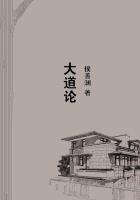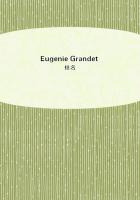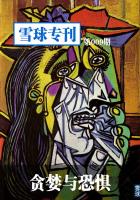"The role of money has at all times provided the first and main stimulus to economic" (!) "ideas. But what did an Aristotle know of this role? No more, clearly than was contained in the idea that exchange through the medium of money had followed the primitive exchange by barter" {21}.
But when "an" Aristotle presumes to discover the two different forms of the circulation of money -- the one in which it operates as a mere medium of circulation, and the other in which it operates as money capital, he is thereby -- according to Herr Dühring -- "only expressing a moral antipathy"And when "an" Aristotle carries his audacity so far as to attempt an analysis of money in its "role" of a measure of value , and actually states this problem, which has such decisive importance for the theory of money, correctly -- then "a" Dühring prefers (and for very good private reasons)to say nothing about such impermissible temerity.
Final result: Greek antiquity, as mirrored in the "notice taken"{21} by Dühring, in fact possessed "only quite ordinary ideas" (p.
25), if such "niaiserie" (p. 19) has anything whatever in common with ideas, whether ordinary or extraordinary.
It would be better to read Herr Dühring's chapter on mercantilism [93] in the "original", that is, in F. List's Nationales System , Chapter 29: "The Industrial System, Incorrectly Called the Mercantile System by the School". How carefully Herr Dühring manages to avoid here too any "semblance of erudition" {17} is shown by the following passage, among others:
List, Chapter 28: "The Italian Political Economists", says:
"Italy was in advance of all modern nations both in the practice and in the theory of political economy", and then he cites, as "the first work written in Italy, which deals especially with political economy, the book by Antonio Serra, of Naples, on the way to secure for the kingdoms an abundance of gold and silver (1613)".
Herr Dühring confidently accepts this and is therefore able to regard Serra's Breve trattato "as a kind of inscription at the entrance of the more recent prehistory of economics" {34}.
His treatment of the Breve trattato is in fact limited to this "piece of literary buffoonery" {506}. Unfortunately, the actual facts of the case were different: in 1609, that is four years before the Breve trattato , Thomas Mun's A Discourse of Trade etc ., had appeared. The particular significance of this book was that, even in its first edition, it was directed against the original monetary system which was then still defended in England as being the policy of the state; hence it represented the conscious self-separation of the mercantile system from the system which gave it birth. Even in the form in which it first appeared the book had several editions and exercised a direct influence on legislation. In the edition of 1664 (England's Treasure etc.) , which had been completely rewritten by the author and was published after his death, it continued to be the mercantilist gospel for another hundred years. If mercantilism therefore has an epoch-****** work "as a kind of inscription at the entrance", it is this book, and for this very reason it simply does not exist for Herr Dühring's "history which most carefully observes the distinctions of rank" {133}.
Of Petty , the founder of modern political economy, Herr Dühring tells us that there was "a fair measure of superficiality in his way of thinking" {54} and that "he had no sense of the intrinsic and nicer distinctions between concepts"{55} ... while he possessed "a versatility which knows a great deal but skips lightly from one thing to another without taking root in any idea of a more profound character" {56}, .. his "national-economic ideas are still very crude", and "he achieves *****tés , whose contrasts ... a more serious thinker may well find amusing at times" {56}.
What inestimable condescension, therefore, for the "more serious thinker"Herr Dühring to deign to take any notice at all of "a Petty" {60}!
And what notice does he take of him?
Petty's propositions on "labour and even labour-time as a measure of value, of which imperfect traces can be found in his writings" {62}
are not mentioned again apart from this sentence. Imperfect traces! In his Treatise on Taxes and Contributions (first edition 1662), Petty gives a perfectly clear and correct analysis of the magnitude of value of commodities. In illustrating this magnitude at the outset by the equal value of precious metals and corn on which the same quantity of labour has been expended, he says the first and the last "theoretical" word on the value of the precious metals. But he also lays it down in a definite and general form that the values of commodities must be measured by equal labour. He applies his discovery to the solution of various problems, some of which are very intricate, and on various occasions and in various works, even where he does not repeat the fundamental proposition, he draws important conclusions from it. But even in his very first work he says:
"This" (estimation by equal labour) "I say to be the foundation of equalizing and balancing of values , yet in the superstructures and practices hereupon, I confess there is much variety, and intricacy."Petty was thus conscious equally of the importance of his discovery and of the difficulty of applying it in detail. He therefore tried to find another way in certain concrete cases.
A natural par should therefore be found between land and labour, so that value might be expressed at will "by either of them alone as well or better than by"Even this error has genius.
Herr Dühring makes this penetrating observation on Petty's theory of value:















